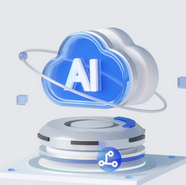人工智能音乐作曲系统
人工智能
2023-11-14 22:00
794
联系人:
联系方式:
阅读提示:本文共计约3070个文字,预计阅读时间需要大约8分钟,由本站编辑整理创作于2023年11月01日15时51分43秒。
Title: The Rise of AI-Powered Music Systems: A New Era in Music Production
In recent years, artificial intelligence (AI) has made significant strides in various fields, including music production. The development of AI-powered music systems has revolutionized the way musicians create and produce music, ushering in a new era in the industry. This article will explore the benefits and potential implications of AI-driven music technology, as well as its impact on the future of music creation.
One of the most notable advantages of AI-powered music systems is their ability to analyze and interpret vast amounts of data quickly and efficiently. This allows for more personalized recommendations and suggestions based on an individual's preferences and listening habits. For example, Spotify's Discover Weekly feature uses AI algorithms to create a customized playlist of songs tailored to a user's taste. This not only enhances the user experience but also helps artists reach a wider audience by exposing them to new music.
Another benefit of AI-driven music technology is its ability to automate certain aspects of the music production process. This can include tasks such as beatmaking, melody generation, and even lyrics writing. This saves musicians valuable time and allows them to focus on other aspects of their craft, such as songwriting and arranging. Additionally, AI-powered music systems can help novice musicians learn the basics of music theory and composition by providing feedback and suggestions based on their input.
However, the use of AI in music production also raises concerns about the potential loss of human creativity and expression. Some argue that relying too heavily on AI algorithms could lead to a homogenization of music, with artists becoming mere conduits for pre-programmed sounds and melodies. To address this concern, many AI-powered music systems allow for a degree of human input and customization, ensuring that the final product still reflects the artist's unique vision and style.
Looking ahead, it's clear that AI-driven music technology will continue to evolve and shape the future of music production. As AI algorithms become more sophisticated and capable of handling increasingly complex tasks, we can expect to see further integration of AI into the music industry. This may include the development of AI-powered virtual bands, where computers generate and perform the music, or the use of AI to assist in live performances, such as by providing real-time audio effects and mixing.
In conclusion, the rise of AI-powered music systems represents a significant shift in the music industry, bringing with it both opportunities and challenges. By harnessing the power of AI, musicians and producers can create more personalized and efficient music experiences, while also ensuring that human creativity and expression remain at the heart of the art form. As AI continues to advance, it will be fascinating to see how the music industry adapts and evolves in the coming years.
本站涵盖的内容、图片、视频等数据系网络收集,部分未能与原作者取得联系。若涉及版权问题,请联系我们进行删除!谢谢大家!
阅读提示:本文共计约3070个文字,预计阅读时间需要大约8分钟,由本站编辑整理创作于2023年11月01日15时51分43秒。
Title: The Rise of AI-Powered Music Systems: A New Era in Music Production
In recent years, artificial intelligence (AI) has made significant strides in various fields, including music production. The development of AI-powered music systems has revolutionized the way musicians create and produce music, ushering in a new era in the industry. This article will explore the benefits and potential implications of AI-driven music technology, as well as its impact on the future of music creation.
One of the most notable advantages of AI-powered music systems is their ability to analyze and interpret vast amounts of data quickly and efficiently. This allows for more personalized recommendations and suggestions based on an individual's preferences and listening habits. For example, Spotify's Discover Weekly feature uses AI algorithms to create a customized playlist of songs tailored to a user's taste. This not only enhances the user experience but also helps artists reach a wider audience by exposing them to new music.
Another benefit of AI-driven music technology is its ability to automate certain aspects of the music production process. This can include tasks such as beatmaking, melody generation, and even lyrics writing. This saves musicians valuable time and allows them to focus on other aspects of their craft, such as songwriting and arranging. Additionally, AI-powered music systems can help novice musicians learn the basics of music theory and composition by providing feedback and suggestions based on their input.
However, the use of AI in music production also raises concerns about the potential loss of human creativity and expression. Some argue that relying too heavily on AI algorithms could lead to a homogenization of music, with artists becoming mere conduits for pre-programmed sounds and melodies. To address this concern, many AI-powered music systems allow for a degree of human input and customization, ensuring that the final product still reflects the artist's unique vision and style.
Looking ahead, it's clear that AI-driven music technology will continue to evolve and shape the future of music production. As AI algorithms become more sophisticated and capable of handling increasingly complex tasks, we can expect to see further integration of AI into the music industry. This may include the development of AI-powered virtual bands, where computers generate and perform the music, or the use of AI to assist in live performances, such as by providing real-time audio effects and mixing.
In conclusion, the rise of AI-powered music systems represents a significant shift in the music industry, bringing with it both opportunities and challenges. By harnessing the power of AI, musicians and producers can create more personalized and efficient music experiences, while also ensuring that human creativity and expression remain at the heart of the art form. As AI continues to advance, it will be fascinating to see how the music industry adapts and evolves in the coming years.
本站涵盖的内容、图片、视频等数据系网络收集,部分未能与原作者取得联系。若涉及版权问题,请联系我们进行删除!谢谢大家!


